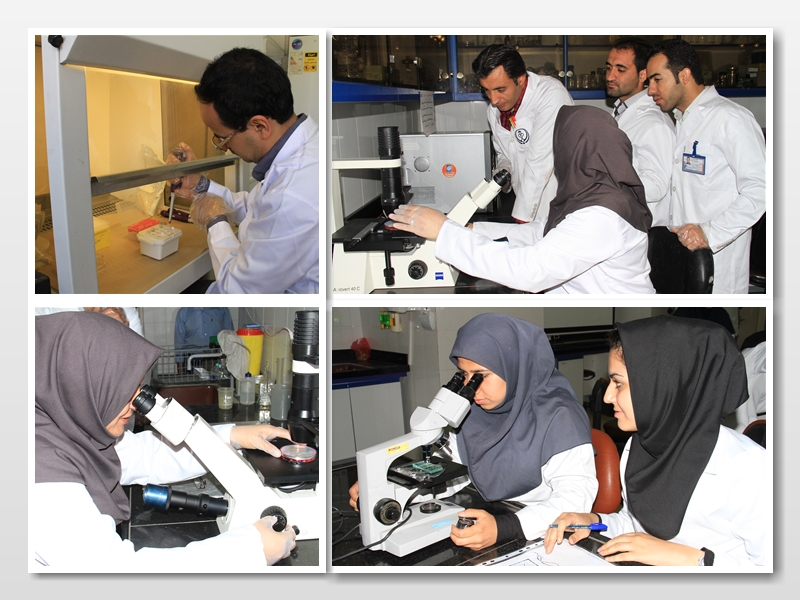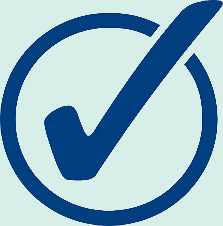School of Medicine

About
The history of SUMS School of Medicine dates back to December 1946 when an “Institute of Health for Higher Education”, which was affiliated to Tehran University was established in Shiraz. The Institute trained medical hygienists, who would contribute to disease prevention and treatment responsibility of Iran’s Ministry of Hygiene, during a 4-year program. Later, following the enactment of the regulation on founding medical schools in cities other than the capital, Shiraz School of Medicine was opened in December 1949.
Up to 1985, Iran’s higher education was regulated by the Ministry of Science and since then, following the institution of the Ministry of Health, Treatment, and Medical Education and consequently, the segregation of medical schools from their affiliated universities, all medical schools have been performing under the authority of the newly established ministry. Therefore, Shiraz Medical School and some other schools in the allied field formed Shiraz University of Medical Sciences (SUMS) in 1988.
SUMS School of Medicine was built on a land of 21345 square meters involving the central library of SUMS, several research laboratories, and educational buildings. As the main school of SUMS, the School of Medicine has been famed for its glorious research activities, expert professionals, eminent professors, and elite students.
SUMS School of Medicine is now one of the fastest growing, top-tier biomedical research enterprises in the Country. Currently, approximately 526 faculty members teach within 23 departments at the School. SUMS School of Medicine’s contribution to medical education, science, and treatment has represented the School as a center of excellence in health care services, health policy, health promotion, research, and training in the south of Iran. The School is now home to over 3700 students, residents, and fellows, including 231 international students. At the moment, SUMS School of Medicine ranks among top three medical schools in the nation.
Vision
The school will have a significant impact on society and the world of medicine through:
-
Continual innovation in education, research, and creativity
-
Developing a comprehensive educational policy which will lead to promotion in the quality of education
-
Introducing a disruptive and dynamic management system
-
Applying novel teaching and research methodologies
-
Suppling the most recent research and educational resources and equipment
-
Attracting national talent
-
Cooperating with world-class universities in faculty and student exchange programs
-
Recruiting skilled faculty members
-
Recruiting international students via the International Education Program
-
Cooperating and sharing knowledge with medical schools of the fifth macro-region in Iran and other medical schools in the region
Mission
To contribute to the well-being of the society of Iran and mankind in general and in compliance with SUMS policy, strong support for every individual, including researchers, teachers, staff, and students shall be observed. Besides, the community shall focus on medical research which can answer the needs of the society and enhance medical knowledge globally.
In term of education, the School of Medicine is responsible to apply novel pedagogical methods and create a transformative educational experience for the students across medical disciplines. In pursuit of this goal, the School is to provide state-of-the-art facilities and educational resources and technology. To provide the opportunity for a transformative and dynamic learning experience for every student, SUMS regionally distinguished medical equipment and facilities shall be used to their full potentials and scientific and friendly relationship between students, teachers, researchers, and staff should be built and strengthened. Education at the School should be programmed to develop the ability of students to learn throughout life and train future prominent medical intellectuals and health care providers.
Core values
Impact, reflected in our commitment to improve life quality and well-being of the nation, deliver health care services to the referred patients from across the world, and to address critical issues facing society regionally, nationally, and globally
Dedication, reflected in our commitment to excellence in medical education and research and health care services
Integrity, reflected in our provision of quality and fair health care services and medical education considering the highest ethical standards in personal and professional behavior
Empathy and compassion, reflected in our support of the members of our community disregard of their socio-economic backgrounds
Collaboration, reflected in our generous dissemination of knowledge as well as external partnerships with medical institutions and research centers both on national and international levels
Programs:
Pursuing a degree at SUMS School of Medicine will be challenging and rewarding. Students will be immersed in clinical encounters, research, and community service opportunities throughout their training. SUMS is renowned for its education innovations and attention to clinical skills, professional behavior and evaluation. Students will learn the science and art of medicine using the latest and most effective methods. Students will also practice teamwork with the multitude of faculty, staff and other learners on our campus.
SUMS School of Medicine is not just a medical school. In addition to training physicians, the school offers programs that measure, shape, and manage health care. In the following, you can find a comprehensive list of the degree programs the School offers:
The following table depicts the list of programs in the field of Clinical Sciences at the School of Medicine:
|
Program Name |
Specialty |
Subspecialty |
Fellowship |
|
Allergy & Immunology
|
|
 |
|
|
Anesthesiology
|
 |
|
|
|
Cardiac Anesthesia
|
|
|
 |
|
Cardiology
|
|
 |
 |
|
Cardiovascular Surgery
|
|
|
 |
|
Colorectal surgery
|
|
|
 |
|
Community Medicine
|
|
 |
|
|
Cornea & External Eye Diseases
|
|
|
 |
|
Critical Care Medicine
|
|
 |
|
|
Dermatology
|
 |
|
|
|
Emergency Medicine
|
 |
|
|
|
Endocrinology and Metabolism
|
|
 |
|
|
Endourology
|
|
|
 |
|
ENT (Ears, Nose, and Throat)
|
 |
|
|
|
Gastroenterology and Hepatology
|
|
 |
|
|
Gynecology Endoscopy
|
|
|
 |
|
Gynecology Oncology
|
|
|
 |
|
Hematology and Oncology
|
|
 |
|
|
Infertility
|
|
|
 |
|
Internal Medicine
|
 |
|
|
|
Interventional Cardiology
|
|
|
 |
|
Interventional Radiology
|
|
|
 |
|
Liver Transplant Surgery
|
|
|
 |
|
Neonatology and Perinatology
|
|
 |
|
|
Neurology
|
 |
 |
|
|
Neurosurgery
|
 |
|
|
|
Nuclear Medicine
|
 |
|
|
|
Obstetrics and Gynecology
|
 |
|
|
|
Ophthalmology
|
 |
|
|
|
Orthopedics
|
 |
|
|
|
Pathology
|
 |
|
|
|
Pediatric Cardiology
|
|
 |
|
|
Pediatric Endocrinology and Metabolism
|
|
 |
|
|
Pediatric Gastroenterology
|
|
 |
|
|
Pediatric Hematology and Oncology
|
|
 |
|
|
Pediatric Infectious Diseases
|
|
 |
|
|
Pediatric Nephrology
|
|
 |
|
|
Pediatric Surgery
|
|
 |
|
|
Pediatrics
|
 |
|
|
|
Physical Medicine and Rehabilitation (PM&R)
|
 |
|
|
|
Plastic Surgery
|
|
 |
|
|
Psychiatry
|
 |
|
|
|
Pulmonary Medicine
|
|
|
|
|
Radiology
|
|
 |
|
|
Radiotherapy
|
 |
|
|
|
Rheumatology
|
|
 |
|
|
Spinal Surgery
|
|
|
 |
|
Surgery (General Surgery)
|
 |
|
|
|
Urology
|
 |
|
|
|
Vascular Surgery
|
|
 |
|
Campus Facilities
To build a more active community, SUMS delivers a wide range of purposeful and conducive facilities available to its community members. The following educational, research, recreation, and welfare facilities are provided by the School of Medicine:
Educational Facilities:
-
Four classrooms with a capacity of 10 to 15 and equipped with audiovisual facilities including the computer system and LED
-
Four classrooms with a capacity of 15 to 50 people and equipped with data projector and a computer system
-
Seven halls with a capacity of 150 to 250 people and equipped with data projectors, computer systems, audio systems, and LED
-
Six classrooms with a capacity of 25 people
-
Six classrooms with a capacity of 26-50 people
-
2 classrooms with a capacity of 51 to 100 people
-
An Animal House
-
An Anatomy Hall
-
A Practical Room
-
Three exam halls equipped with CCTV
-
A 450 Square meter study hall with 200 seats for male students equipped with single, double and quadruple study tables
-
A 450 Square meter study hall with 200 seats for female students equipped with single, double and quadruple study tables
-
Computer pool with a capacity of 32 PCs arranged separately for male and female students.
-
A group-study hall for the students
-
Two computer workshops, one with a capacity of 35 PCs (All in one); and the other,22 PCs
-
Library resources including approximately 11,000 books and 11400 theses, 90% of which are in English and original copies
-
In addition to journals that can be printed or retrieved from databases, it is possible to order an article electronically and receive it via email.
-
Book return box (shuttle) installed at the entrance of the library circulation desk
-
Equipment available for web conferencing
-
Equipment for video conferencing
-
An acoustic room
-
A virtual dissection table (being purchased)
Recreation and Welfare Facilities
-
A 255 sq. m coffee shop
-
A 255-square meter self-service hall for females
-
A 200-square meter self-service hall for males
-
A 863-square meter multifunctional indoor gym with fitness and shooting hall
-
A supermarket with an area of 65 square meters
-
A prayer hall
Contact Details
Dean: Javad Kojuri
Email: info@sums.ac.ir
Address: School of Medicine, Imam Hossein square, Zand St., Shiraz, Iran
Zip Code: 14336 - 71348
Tel.: (+98 71) 32 30 54 10